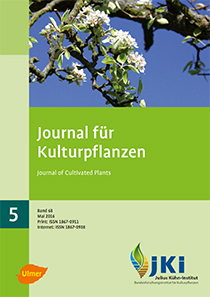Status Quo of research to minimize and substitute the use of copper pesticides in Germany
Keywords:
Copper, minimising, replacement, strategies, researchAbstract
As the permission for using copper pesticides against bacteria and fungi in European agriculture expires on 31 January 2018, the search for minimization and alternative pest management strategies is an important goal of research. Since 2001, the Federal Agency for Agriculture and Food (BLE) promotes research institutions in Germany through the Federal Research Program (Bundesprogramm Ökologischer Landbau und andere Formen nachhaltiger Landwirtschaft, BÖLN) to find practical solutions in this area. The copper research and minimization strategy was funded with 10.2 million Euros in total. The overview of the status quo of the research in this field points out the progress made in the continuous reduction of the copper application rate in recent years. Furthermore, it shows that a complete renunciation of copper as a pesticide is not practicable in organic farming yet, because that would make the production of several crops unprofitable and would lead to reconversion to conventional production. The research on the reduction and substitution of copper must therefore be pursued continuously and intensively.
DOI: 10.5073/JfK.2016.05.02, https://doi.org/10.5073/JfK.2016.05.02
Downloads
Published
Issue
Section
License
The content of the journal is licensed under the Creative Commons Attribution 4.0 License. Any user is free to share and adapt (remix, transform, build upon) the content as long as the original publication is attributed (authors, title, year, journal, issue, pages).
The copyright of the published work remains with the authors. The authors grant the Journal of Cultivated Plants, the Julius Kühn-Institut and the OpenAgrar repository the non-exclusive right to distribute and exploit the work.







